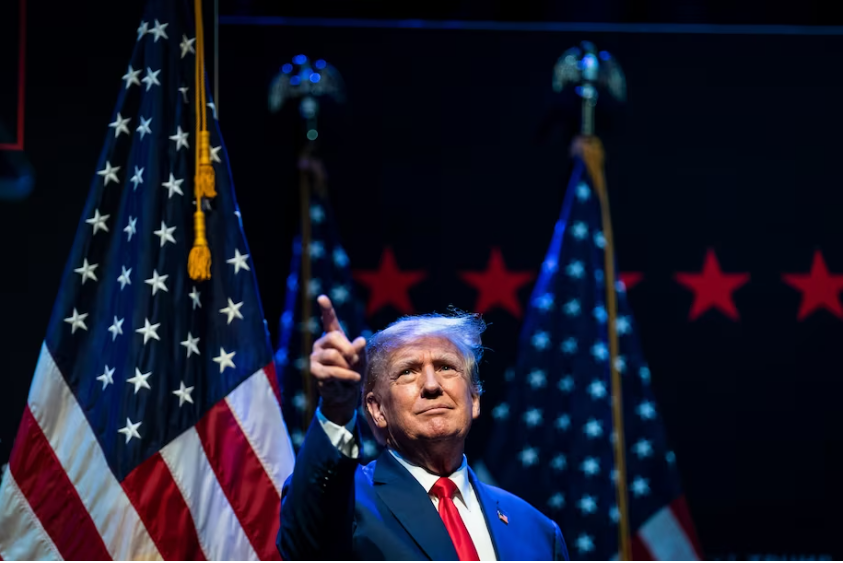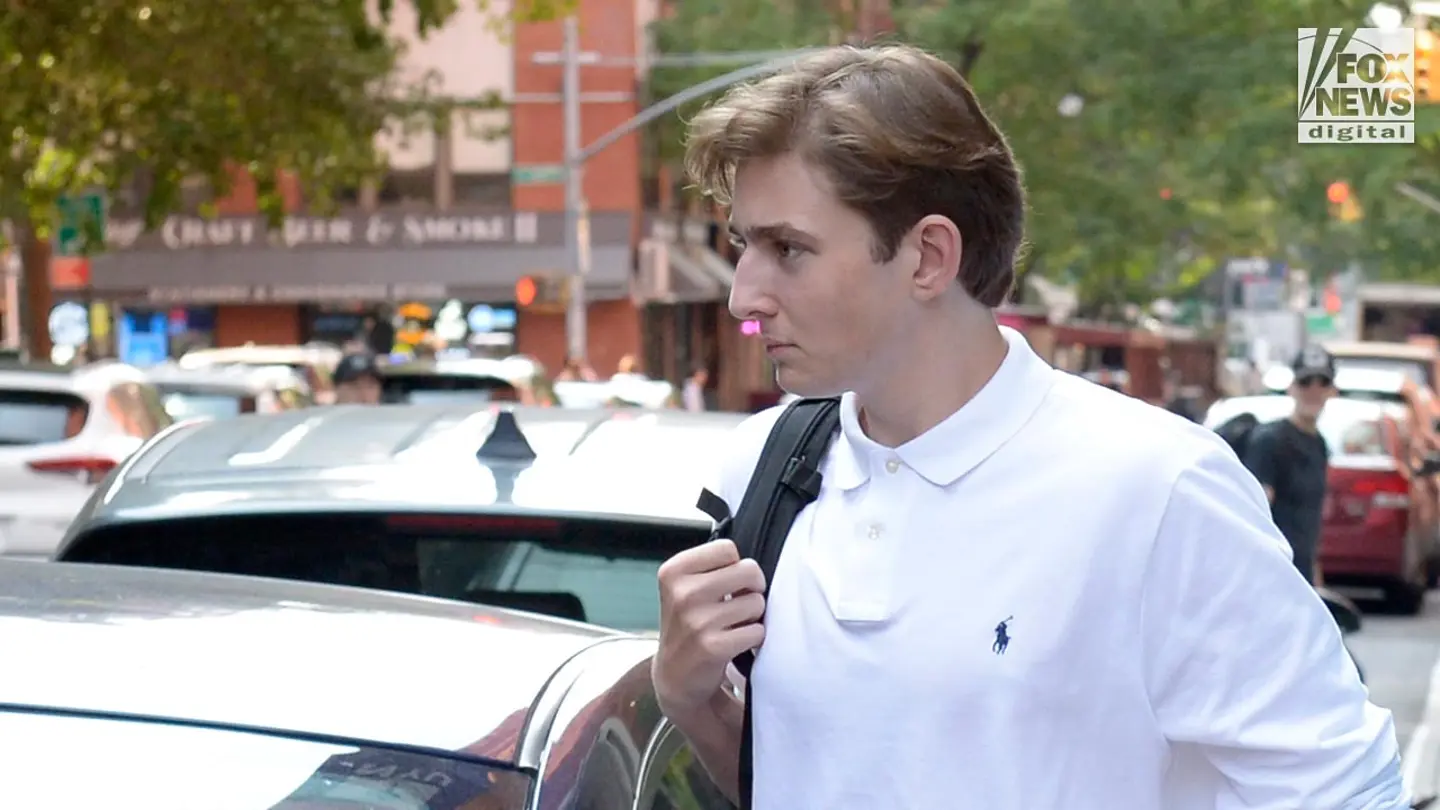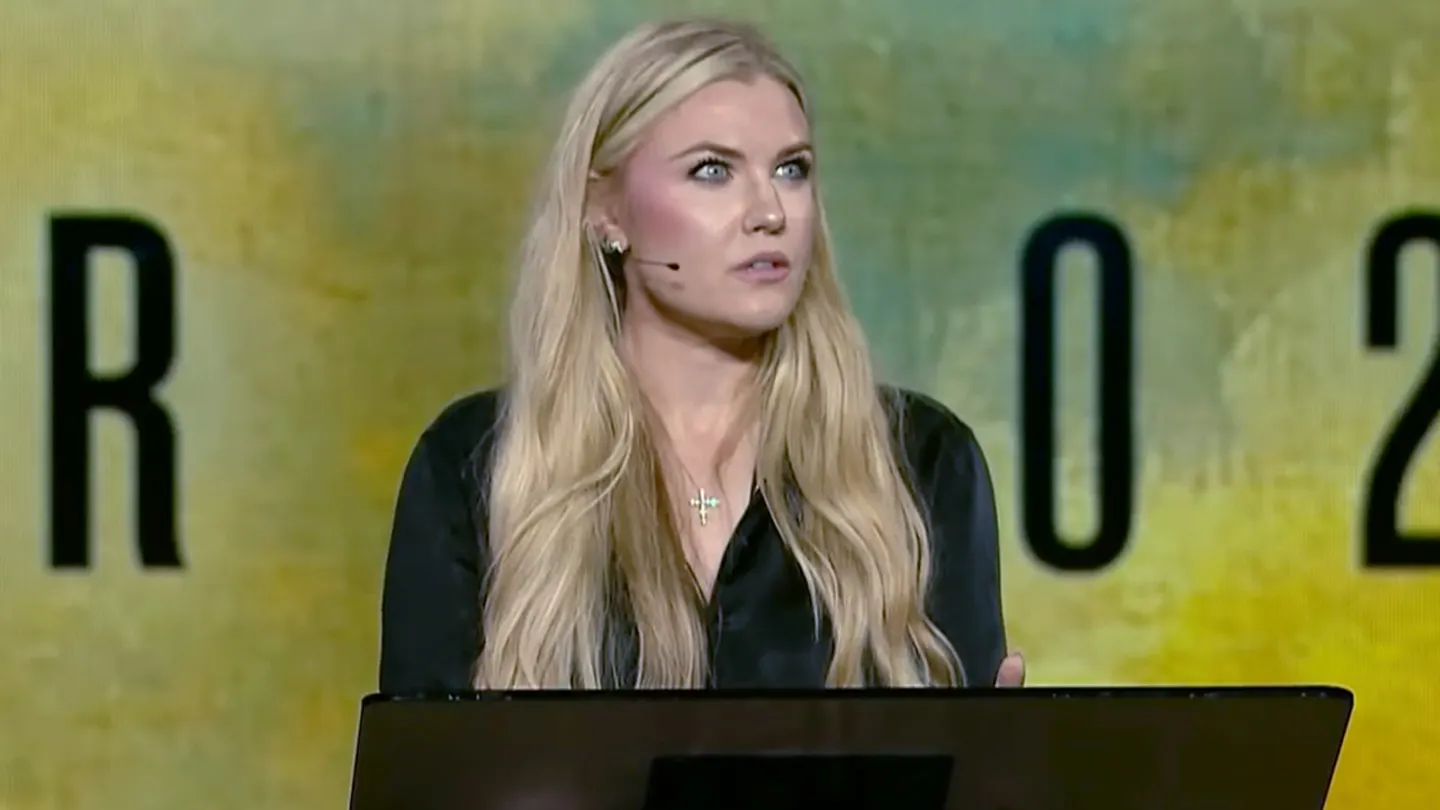Donald Trump on Monday sharply rebuked Mike Pence’s assertion that history would hold him accountable for the Jan. 6, 2021, attack on the U.S. Capitol, telling reporters that his former vice president should shoulder the blame for the violent riot that day by Trump’s supporters.
“Had he sent the votes back to the legislatures, they wouldn’t have had a problem with Jan. 6, so in many ways you can blame him for Jan. 6,” the former president said, referring to Pence’s refusal to reject the electoral college votes in Congress as Trump wanted him to do that day. “Had he sent them back to Pennsylvania, Georgia, Arizona, the states, I believe, number one, you would have had a different outcome. But I also believe you wouldn’t have had ‘Jan. 6’ as we call it.”
A pro-Trump mob attacked the Capitol on that day following months of false claims by Trump that the election was stolen from him. He also used incendiary and false rhetoric about the election at a rally at the Ellipse near the White House shortly before the rioters stormed the Capitol.
Trump was responding to Pence’s remarks on Saturday, where he said unequivocally that Trump had been “wrong” to demand he overturn the election, something Pence maintained he had no power to do. “His reckless words endangered my family and everyone at the Capitol that day,” Pence said during a speech at the white-tie Gridiron dinner in Washington. “And I know that history will hold Donald Trump accountable.”
The former president made his comments to reporters aboard his plane as he made his way to Iowa for his first visit since announcing his presidential bid last year. The trip came as Trump was also under intense legal scrutiny, facing several investigations.
Trump suggested that Pence’s condemnation was driven by his single-digit showings in recent surveys of potential 2024 Republican presidential contenders. (Pence has not officially announced his candidacy, even as he has made moves toward entering the race.)
“I guess he figured that being nice is not working,” Trump said. “But, you know, he’s out there campaigning. And he’s trying very hard. And he’s a nice man, I’ve known him, I had a very good relationship until the end.”
Leading up to the Jan. 6 attack, Pence sought legal advice on his role presiding over the joint session of Congress during the formal certification of the election results, and he determined that he had no ability to unilaterally reject the electoral college votes or refer them back to state legislatures. Testimony to the House committee investigating the attack on the Capitol indicated that Trump privately seethed at Pence for turning him down, criticized him on Twitter, never called him during the riot to check on his well-being, and reacted with approval to hearing rioters chanting “Hang Mike Pence.” Trump denied ever saying the phrase himself.
Pence was subpoenaed this month by the special counsel investigating the Jan. 6 attack, and he indicated that he will resist testifying.
In December, Congress approved bipartisan legislation to clarify the procedures for certifying the electoral college results. Trump argued that the change demonstrated that Pence did have the authority to do what he wanted before the new law.
“He had the right to send them back, otherwise they wouldn’t have changed the Voting Act,” Trump told reporters on the plane. “They all said, ‘He didn’t have any rights at all, he was a human conveyor belt, he had no rights even if it was fraud.’ And then the day after he did it, they said, ‘Now we’re going to change it so he doesn’t do it.’ Meaning, you understand that, meaning he had the right to do it.”
Trump also shrugged off questions about the legal trouble he could be facing during brief comments on Monday.
The Post reported last week that Trump has been invited by the Manhattan district attorney to testify before a grand jury, according to three people with knowledge of the proceedings. A grand jury heard Monday afternoon from Michael Cohen, Trump’s former confidant. In 2016, Cohen paid $130,000 to adult-film actress Stormy Daniels to try to prevent her from publicly claiming that she had an affair with Trump years earlier. The former president denied the affair.
Manhattan District Attorney Alvin Bragg is looking at whether Trump broke campaign finance laws by classifying as routine legal fees the payments he made to reimburse Cohen for the sum that he paid to Daniels, people familiar with the situation have said.
The invitation to Trump is a sign that the case could be close to completion and that Bragg is likely to ask a grand jury for an indictment.
Responding to a question about the probe on the tarmac Monday, Trump said no one has asked him about testifying.
Trump spoke to reporters shortly before a speech billed by his campaign as remarks on education policy here in Davenport — a city that his chief rival, Florida Gov. Ron DeSantis (R), visited Friday. DeSantis, who is expected to announce his own bid for the White House later this year, has been touring the country promoting his book.
By trying to focus on education, the former president appears to be seeking an advantage in a policy area where DeSantis has made some attention-grabbing moves that have raised his profile on the right. Yet Trump started his speech Monday evening by discussing farming and touching on foreign policy; his first mention of education came more than an hour into his remarks, when he vowed to end federal funding for schools promoting “critical race theory, transgender insanity and any other inappropriate racial, sexual or political content on our children.” (Critical race theory is an academic framework that views racism as systemic.)
Trump is a latecomer to the conservative movement laser-focused on schools, compared to ambitious GOP governors such as DeSantis and Virginia’s Glenn Youngkin, who have enacted state-level policies that have won cheers on the right and have alarmed civil rights leaders, Democrats, and some community leaders.
DeSantis has waged what he refers to as a war on “woke” ideology and the left’s “indoctrination” of students — calling for dismantling diversity programs at the state’s colleges and universities and signing a law restricting school discussions of sexual orientation and gender identity.
On Monday, Trump told reporters that he wasn’t worried about the challenge that DeSantis presents to his White House aspirations. And though he has held events in several states since the end of last year, he insisted to reporters: “I really started campaigning a couple of weeks ago.”
Questioned on whether he regrets endorsing DeSantis when he ran for governor in 2018, Trump replied: “Yeah, maybe.”
Trump said he nicknamed DeSantis “Ron DeSanctimonious,” in reference to the lack of gratitude he claimed that DeSantis has shown after Trump bolstered his political rise.
DeSantis’s aides did not immediately respond to a request for comment.
During his speech, Trump criticized DeSantis’s past stances on Medicare and Social Security, charging that the governor wanted to decimate Social Security and favored “severely” cutting Medicare. Trump also sought to tie DeSantis to Paul D. Ryan, the former Wisconsin congressman and House speaker who proposed replacing Medicare by giving seniors money for private health insurance.
“I will not be cutting Medicare, and I will not be cutting Social Security,” Trump said. “Ron was a disciple of Paul Ryan.”
While he was serving in Congress, DeSantis voted for three nonbinding budget resolutions that called for raising the retirement age and slowing future spending growth for Social Security.
DeSantis has charted a different course on those issues as they have become larger political liabilities for his potential campaign. On Fox News, DeSantis recently said that Republicans were “not going to mess with Social Security.”
Speaking in a state that is the nation’s biggest producer of ethanol, Trump also alleged that DeSantis was “very, very bad on ethanol. He fought it all the way.” In 2017, DeSantis co-sponsored a bill known as the Renewable Fuel Standard Elimination Act, which would have eliminated the requirement for the blending of biofuels like ethanol into the nation’s transportation fuels.




